

Cheb Khaled
Born: February 29, 1960
in Oran, Algérie
in Oran, Algérie
Khaled Hadj Ibrahim (Arabic: خالد حاج إبراهيم; born 29 February 1960), better known by his mononym Khaled (Arabic: خالد), is an Algerian raï singer, musician and songwriter. He began recording in his early teens under the name Cheb Khaled (شاب خالد, Arabic for "Young" Khaled, with "Cheb" as a common title for male raï singers).
Khaled is one of the most important musicians in the history of Raï music in his native Algeria and is one the world's best-known Arab singers. To date, Khaled has sold over 80.5 million albums (10 diamond, platinum, and gold) worldwide, making him one of the bestselling Arabic-language singers in history Among his most famous songs are "Aïcha", "Didi", "El Arbi", "Abdel Kader", "La Poupée qui fait non", "Wahran Wahran", "Bakhta", "C'est la vie", and "Alech Taadi".
He holds the Guinness World Record for best-selling artist of raï music.
Khaled was born on 29 February 1960 in Oran's Eckmühl neighborhood, Algeria.
His rise to national fame was mainly due to the efforts of Lieutenant-Colonel Hosni Snoussi, director of the state-supported arts and culture Office Riadh el Feth, who took Khaled under his wing and invited him along with other rai stars to perform at the state-sponsored Festival de la Jeunesse pour la Fête Nationale in Algiers in July 1985. In the same year, he was crowned king of rai in the first official festival of rai which was staged in Oran.
Hosni Snoussi and Martin Meissonnier, who met at the Festival, convinced France's Minister of Culture Jack Lang that the export of rai from Algeria to France was in the French government's interest and together they organized the first rai festival in France at Bobigny in 1986. Cheb Khaled, who had been avoiding his mandatory military service, was able to perform at Bobigny only after Colonel Snoussi intervened with the Algerian military authorities to secure him a passport. Shortly thereafter, Snoussi arranged for Cheb Khaled to record in France, with funding from the Office Riadh el Feth. The album, Kutché, released in 1988, a collaboration between Khaled and the Algerian jazz musician Safy Boutella, expanded his reputation in France, where he soon settled.
In 1992, having dropped the "Cheb" from his performance name, he recorded Khaled, which was produced by Don Was. The album's first single Didi, which was a major hit in Europe, the Arab World, and in South and East Asia, made him an international superstar.
"One of the Pioneers of world music, Rai musician Khaled has gone beyond all geo-political boundaries to become one of the world's most popular performers, mixing traditional Algerian music with western rhythms and styles such as soul, rock and reggae to achieve his distinctive sound and voice unlike anyone ever. Khaled has been celebrated not only for his music, but for his role as a builder of bridges between cultures. selling more than 80 millions copies around the world makes him a nationwide celebrity and unofficial ambassador for the country's Arab minority."—Food and Agriculture Organization of the United Nations, Rome, 2008. ...
Source: Article "Khaled (musician)" from Wikipedia in English, licensed under CC-BY-SA 3.0.
Khaled is one of the most important musicians in the history of Raï music in his native Algeria and is one the world's best-known Arab singers. To date, Khaled has sold over 80.5 million albums (10 diamond, platinum, and gold) worldwide, making him one of the bestselling Arabic-language singers in history Among his most famous songs are "Aïcha", "Didi", "El Arbi", "Abdel Kader", "La Poupée qui fait non", "Wahran Wahran", "Bakhta", "C'est la vie", and "Alech Taadi".
He holds the Guinness World Record for best-selling artist of raï music.
Khaled was born on 29 February 1960 in Oran's Eckmühl neighborhood, Algeria.
His rise to national fame was mainly due to the efforts of Lieutenant-Colonel Hosni Snoussi, director of the state-supported arts and culture Office Riadh el Feth, who took Khaled under his wing and invited him along with other rai stars to perform at the state-sponsored Festival de la Jeunesse pour la Fête Nationale in Algiers in July 1985. In the same year, he was crowned king of rai in the first official festival of rai which was staged in Oran.
Hosni Snoussi and Martin Meissonnier, who met at the Festival, convinced France's Minister of Culture Jack Lang that the export of rai from Algeria to France was in the French government's interest and together they organized the first rai festival in France at Bobigny in 1986. Cheb Khaled, who had been avoiding his mandatory military service, was able to perform at Bobigny only after Colonel Snoussi intervened with the Algerian military authorities to secure him a passport. Shortly thereafter, Snoussi arranged for Cheb Khaled to record in France, with funding from the Office Riadh el Feth. The album, Kutché, released in 1988, a collaboration between Khaled and the Algerian jazz musician Safy Boutella, expanded his reputation in France, where he soon settled.
In 1992, having dropped the "Cheb" from his performance name, he recorded Khaled, which was produced by Don Was. The album's first single Didi, which was a major hit in Europe, the Arab World, and in South and East Asia, made him an international superstar.
"One of the Pioneers of world music, Rai musician Khaled has gone beyond all geo-political boundaries to become one of the world's most popular performers, mixing traditional Algerian music with western rhythms and styles such as soul, rock and reggae to achieve his distinctive sound and voice unlike anyone ever. Khaled has been celebrated not only for his music, but for his role as a builder of bridges between cultures. selling more than 80 millions copies around the world makes him a nationwide celebrity and unofficial ambassador for the country's Arab minority."—Food and Agriculture Organization of the United Nations, Rome, 2008. ...
Source: Article "Khaled (musician)" from Wikipedia in English, licensed under CC-BY-SA 3.0.
Movies for Cheb Khaled...
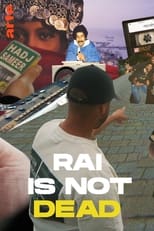
Title: Raï Is Not Dead
Character: Self
Released: February 6, 2023
Type: TV
What musical genre can claim to have gone, in the space of fifty years, from a hidden cabaret in Oran to Super Bowl halftime? Born in Algeria at the end of the Second World War, the raï wave spread from the cabarets of western Algeria to the cassette shops of Barbès in Paris, before sweeping the world at the end of the 1980s. its hybridization, the intoxicating music traveled from Algerian and French weddings to the biggest international stages, before suddenly disappearing from the radar at the dawn of the new millennium. Icons that have disappeared, including Cheikha Remitti and Prince Hasni, to young heirs, passing by the star Khaled, the collector Hadj Sameer trace the tumultuous course of this musical genre, between clandestinity, planetary glory and resistance.


Title: Africa Rising
Character: Self - Musician (archive footage)
Released: June 3, 2019
Type: Movie
How African artists have spread African culture all over the world, especially music, since the harsh years of decolonization, trying to offer a nicer portrait of this amazing continent, historically known for tragic subjects, such as slavery, famine, war and political chaos.

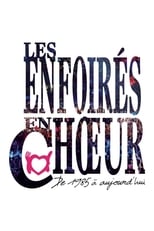
Title: Les Enfoirés - Les Enfoirés en chœur de 1985 à aujourd'hui
Released: December 13, 2014
Type: Movie

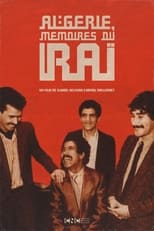

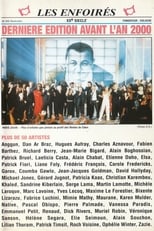
Title: Les Enfoirés 1999 - Dernière édition avant l'an 2000
Released: February 13, 1999
Type: Movie

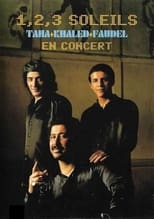

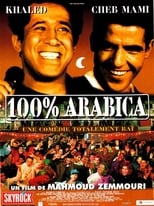
Title: 100% Arabica
Character: Rachid
Released: November 5, 1997
Type: Movie
The movie takes place in a poverty-stricken, rent-controlled neighborhood on the outskirts of Paris. Algerian immigrants, many of whom are in France illegally, the place has earned the nickname of "100%Arabica". It's a rough neighborhood - crime is rampant, gangs of juvenile delinquents roam the streets, and the police are afraid to patrol the area. When the out-of-touch mayor decides that he wants to restore order to the area, he offers a subsidy to Slimane, the imam of the local mosque. If Slimane can get people off the streets, the mayor will continue the payments. Soon the byways of 100%Arabica are almost peaceful - but not because of something Slimane has done. The reason is that a new Rai Band, Rap Oriental, has taken the neighborhood by storm...

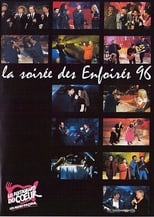
Title: Les Enfoirés 1996 - La Soirée des Enfoirés
Released: February 10, 1996
Type: Movie

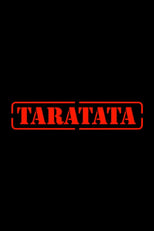
Title: Taratata
Character: Self
Released: January 10, 1993
Type: TV
Taratata was a French TV show showcasing live and pre-recorded footage of current rock acts. Presented by Nagui since its début in 1993, the show was initially shown on France 2. The show often involved surprise and unlikely duets, as well as brief interviews with the artists. Taratata was cancelled in 2000, but returned in April 2005 on the public French network France 4 once a week on prime time, France 3, and late night once a month France 2 and Virgin Radio. Artists including Devendra Banhart, Katie Melua, and Ayo made their French TV debut on the show. The show's chief lighting technician, Jean-Philippe Bourdon, was awarded two Sept d'or in 1994 and 1995.
The show featured unique duets and highlights new artists and uses different presenters for each episode. These aspects, and the general emphasis on original music, led the Conseil supérieur de l'audiovisuel to identify Taratata as a uniquely creative show on French TV in April 2009.
The show aired throughout Europe on TV5MONDE Europe on Saturday nights. The show is also franchised to Dubai Television in Arabic with an almost identical format to its French counterpart.
On 31 May 2013, France Télévisions announced that the show was cancelled. Despite the announcement, the show will continue in a web only format and that a concert will be oragnized at Zénith de Paris on 10 October 2013. The last show was recorded on 13 June 2013 and was broadcast on 12 July 2013.

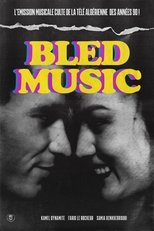
Title: Bled Music
Character: Self
Released: January 1, 1991
Type: TV
"Bled Music" is an Algerian musical television program broadcast on ENTV between 1991 and 1992. directed by Aziz Smati and presented by Kamel Dynamite, Farid Rockeur and Samia Benkherroubi. The show, with its irreverent tone, was very popular and had a significant impact on the Algerian music scene, allowing the emergence of many artists including Chaba Fadela, Cheb Sahraoui, Cheb Anouar and Mohamed Lamine. A ranking of music videos by popularity and relied on fans sending their votes by mail. At the end of the 1980s, unrest broke out in Algeria which led the country into a Black Decade. At this time, fundamentalist groups attempted to ban music and most other forms of artistic expression. The show continued to air despite death threats, but on February 14, 1994, Aziz Smati was shot in both legs by a young extremist, which ultimately led to the end of the show .


Title: Victoires de la musique
Character: Self (Song of the Year)
Released: November 23, 1985
Type: TV


Title: Victoires de la musique
Character: Self (Francophone Artist or Artist of the Year)
Released: November 23, 1985
Type: TV


